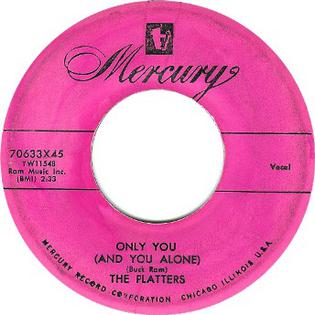Related Research Articles

Joy Division were an English post-punk band formed in Salford in 1976. The group consisted of vocalist, guitarist and lyricist Ian Curtis, guitarist and keyboardist Bernard Sumner, bassist Peter Hook and drummer Stephen Morris.

New Order are an English rock band formed in Salford in 1980 by vocalist and guitarist Bernard Sumner, bassist Peter Hook, and drummer Stephen Morris. Their fusion of post-punk with electronic and dance music made them one of the most acclaimed and influential bands of the 1980s. The band regrouped after the disbandment of their previous band, Joy Division, following the suicide of lead singer Ian Curtis. Keyboardist Gillian Gilbert joined them later that year. They became the flagship band for Manchester-based independent record label Factory Records and its nightclub, The Haçienda, and worked in long-term collaboration with graphic designer Peter Saville.

The Brothers Johnson were an American funk and R&B band consisting of the American brothers George and Louis E. Johnson. They achieved their greatest success from the mid-1970s to early 1980s, with three singles topping the R&B charts.

Earth, Wind & Fire is an American band formed in Chicago, Illinois in 1969. Their music spans multiple genres, including jazz, R&B, soul, funk, disco, pop, Latin and Afro-pop. They are among the best-selling bands of all time, with sales of over 90 million records worldwide.

Factory Records was a Manchester-based British independent record label founded in 1978 by Tony Wilson and Alan Erasmus.

A Certain Ratio are an English post-punk band formed in Greater Manchester in 1977 by Peter Terrell (guitar), Simon Topping, Jez Kerr, Martin Moscrop and Donald Johnson (drums), with Martha Tilson (vocals) joining soon after.

Alexander O'Neal is an American R&B singer, songwriter and arranger from Natchez, Mississippi.

Cynthia Ann Birdsong is an American singer who became famous as a member of The Supremes in 1967, when she replaced co-founding member Florence Ballard. Birdsong had previously been a member of Patti LaBelle & The Bluebelles.

"Touched by the Hand of God" is the fifteenth single by English band New Order, released as a single on 7 December 1987. The song was originally recorded for the soundtrack to the film Salvation! and the version released as a single was remixed by Arthur Baker. The B-side was a dub remix, titled "Touched by the Hand of Dub", and the release had the catalogue number FAC 193; its production is credited to New Order.

"Only You (And You Alone)" (often shortened to "Only You") is a pop song composed by Buck Ram. It was originally recorded by The Platters with lead vocals by Tony Williams in 1955.

Swing Out Sister are a British pop group, best known worldwide for the 1986 song "Breakout". Other hits include "Surrender", "You On My Mind", "Twilight World", "Waiting Game", and a remake of the Eugene Record soul composition "Am I the Same Girl?"

The Gap Band was an American R&B and funk band that rose to fame during the 1970s and 1980s. The band consisted of three brothers: Charlie, Ronnie, and Robert Wilson, along with other members; it was named after streets in the historic Greenwood neighborhood in the brothers' hometown of Tulsa, Oklahoma.
Five Star were a British pop group, formed in 1983 and comprising siblings Stedman, Lorraine, Denise, Doris, and Delroy Pearson. From 1985 to 1988, Five Star had four top-20 albums and 15 top-40 singles in the UK, including the top-10 hits "System Addict" (1986), "Can't Wait Another Minute" (1986), "Find the Time" (1986), "Rain or Shine" (1986), "Stay Out of My Life" (1987) and "The Slightest Touch" (1987). They won the 1987 Brit Award for Best British Group.
Robert Leo Gretton was the manager of Joy Division and New Order. He was partner in and co-director of Factory Records and a founding partner of The Haçienda. For ten years until his death in 1999, Gretton ran his own label, Rob's Records.
Quando Quango were a British electronic music group, formed by The Haçienda DJ and Factory Records A&R man Mike Pickering, Hillegonda Rietveld and Reinier Rietveld. Their unique sound influenced the underground dance music scenes in New York and Chicago in the 1980s. Their first release was the "Go Exciting" twelve-inch single on Factory Records in 1982, and their last release of new music was the 1985 full-length album Pigs + Battleships.

"Save Room" is a song by American singer John Legend, released on August 8, 2006 as the lead single from his second album, Once Again (2006). A joyful love song, it was written and produced by Legend and fellow American singer will.i.am, with additional writing and production by Jessyca Wilson and Kanye West, respectively. Its production is built upon a sample of Gábor Szabó's version of the Classics IV hit "Stormy”, written by Buddy Buie and James B. Cobb, Jr.; its usage was at the suggestion of Legend's then-label boss and manager, West. A music video was made for the song, directed by Bryan Barber.

"These Dreams" is a song by American rock band Heart from their 1985 self-titled eighth studio album. It was released on January 18, 1986, as the album's third single, becoming the band's first song to top the Billboard Hot 100. The single's B-side track "Shell Shock", was also the B-side of Heart's previous single "Never".
"One Night" is a song written by Dave Bartholomew, Pearl King, and Anita Steiman. It originally was an R&B hit for Smiley Lewis in 1956, before being recorded with greater commercial success by Elvis Presley in 1958.

Masterjam is the platinum-selling eighth studio album by funk band Rufus. Released in 1979, it was their debut on the MCA Records label following their purchase and dissolution of ABC Records.

"Let's Stick Together" is a blues-based rhythm and blues song written by Wilbert Harrison. In 1962, Fury Records released it as a single. Harrison further developed the song and in 1969, Sue Records issued it as a two-part single titled "Let's Work Together". Although Harrison's original song did not appear in the record charts, his reworked version entered the U.S. Top 40.
References
- 1 2 3 Hogan, Ed. "Artist Biography". AllMusic . Retrieved 23 September 2020.
- ↑ "52ND STREET". The Factory Records catalogue. Retrieved 18 October 2020.
- ↑ Morley, Paul. "Sparkling", NME . 29 May 1982.
- 1 2 3 "52nd Street Top Songs / Chart Singles Discography". Music VF. Retrieved 23 September 2020.
- 1 2 3 "24 Hour Party People". 22 June 2002. Archived from the original on 22 June 2002. Retrieved 27 June 2016.
- ↑ "HERITAGE: GROUNDBREAKING MANCUNIAN R&B BAND 52ND STREET PERFORM "I'LL RETURN" ON 'SOLID SOUL' (1986)". Trench. 13 April 2018. Retrieved 18 October 2020.
- ↑ "52nd Street - Chart History: Dance Club Songs". Billboard. Archived from the original on 26 April 2016. Retrieved 18 October 2020.
- ↑ Blues & Soul, Issues 448-460. Napfield Limited. 1985. p. 11. Retrieved 18 October 2020.
- 1 2 "52nd Street – Chart History: Top R&B/Hip-Hop Albums". Billboard. Archived from the original on 26 April 2016. Retrieved 11 July 2014.
- 1 2 3 Roberts, David (2006). British Hit Singles & Albums (19th ed.). London: Guinness World Records Limited. p. 199. ISBN 1-904994-10-5.
- 1 2 "52nd Street - Chart History: Hot R&B/Hip-Hop Songs". Billboard. Archived from the original on 26 April 2016. Retrieved 18 October 2020.
- ↑ Roberts, David (2006). British Hit Singles & Albums (19th ed.). London: Guinness World Records Limited. p. 119. ISBN 1-904994-10-5.
- 1 2 "52ND STREET - full Official Chart History". Official Charts Company . Retrieved 23 September 2020.